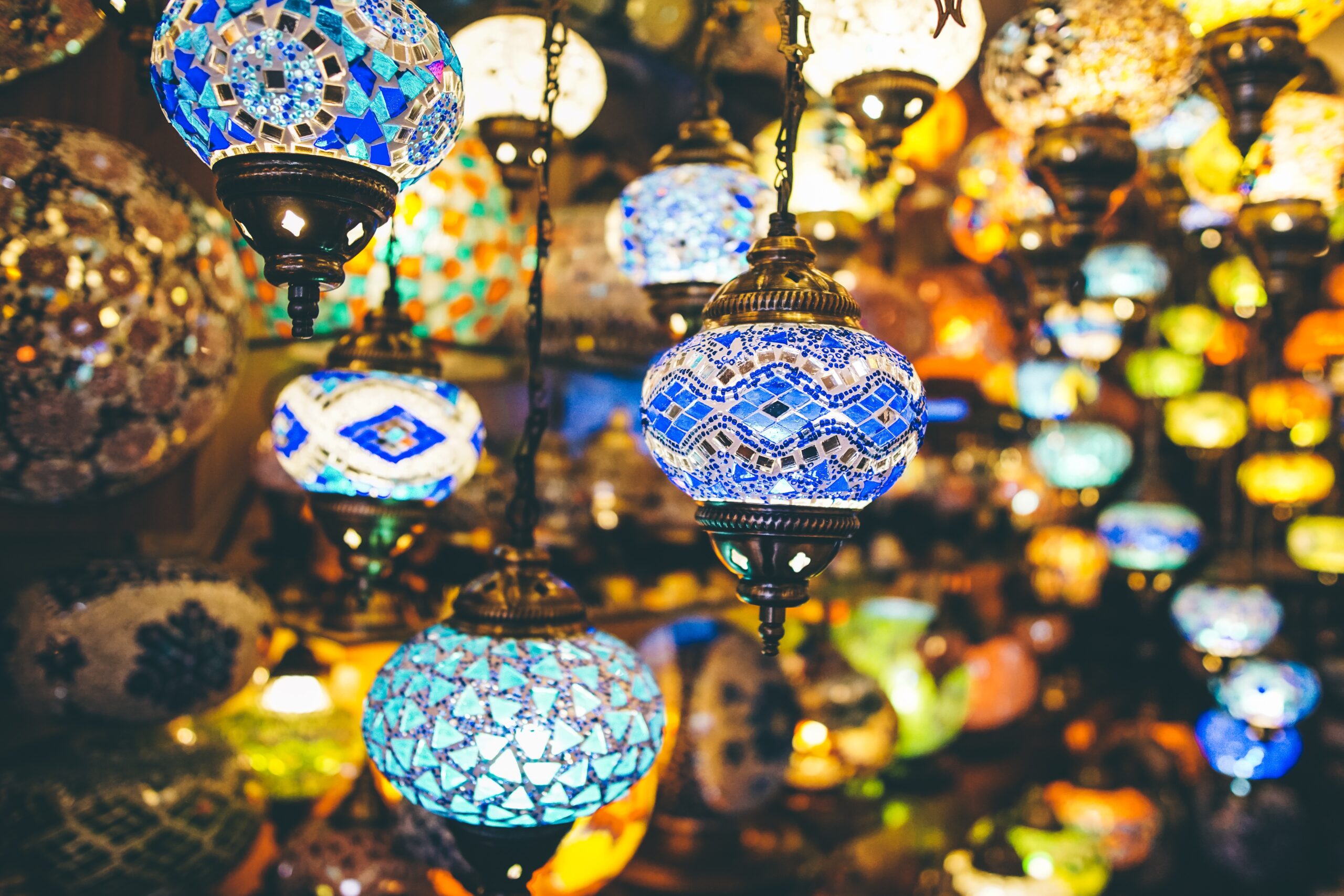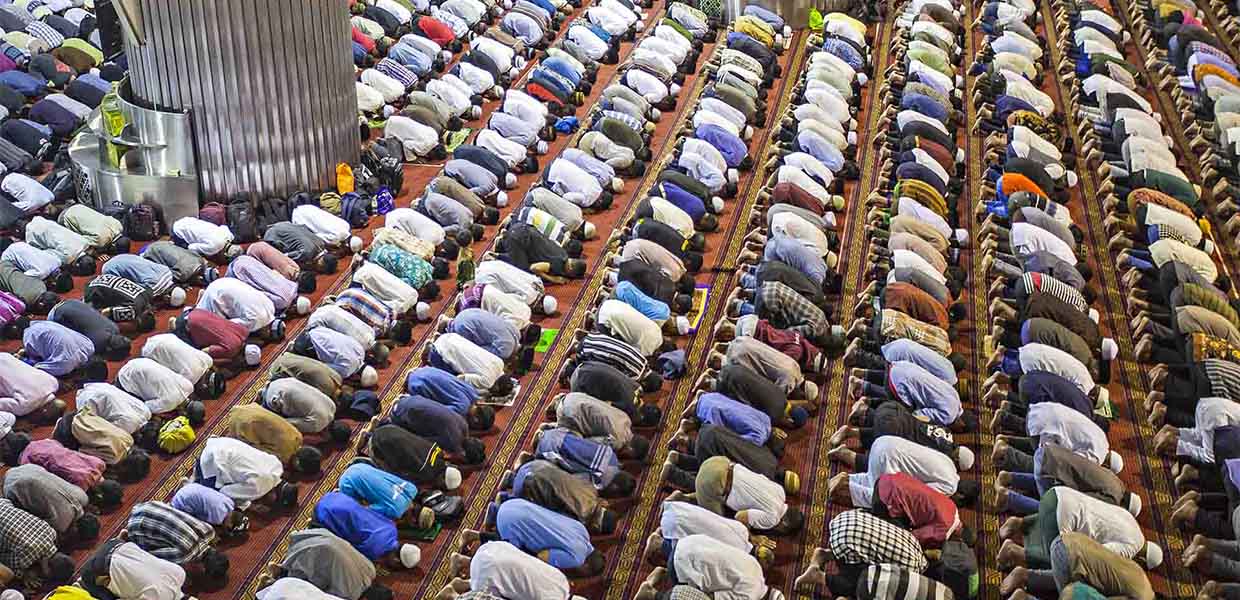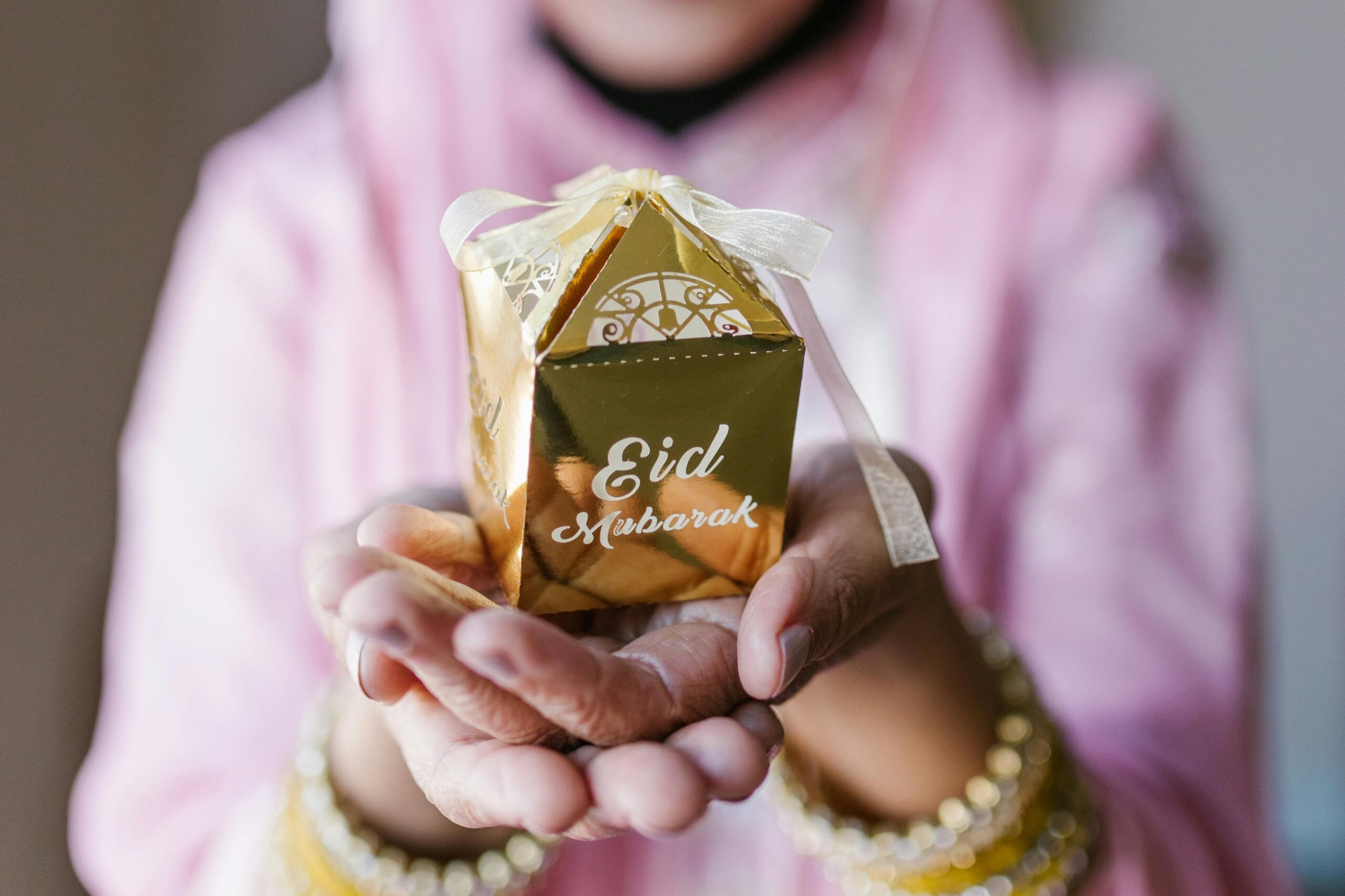
03.03.26
Eid al-Fitr: Celebrating the End of Ramadan
Eid al-Fitr, also known as the “Festival of Breaking the Fast,” is a significant celebration in Islam. This year, it is expected to fall on the evening of March 20, 2026, pending the sighting of the moon.
The celebration occurs at the end of Ramadan, the Islamic month of fasting, when the new moon for the following month, Shawwal, is sighted. But why and how do Muslims celebrate Eid al-Fitr?
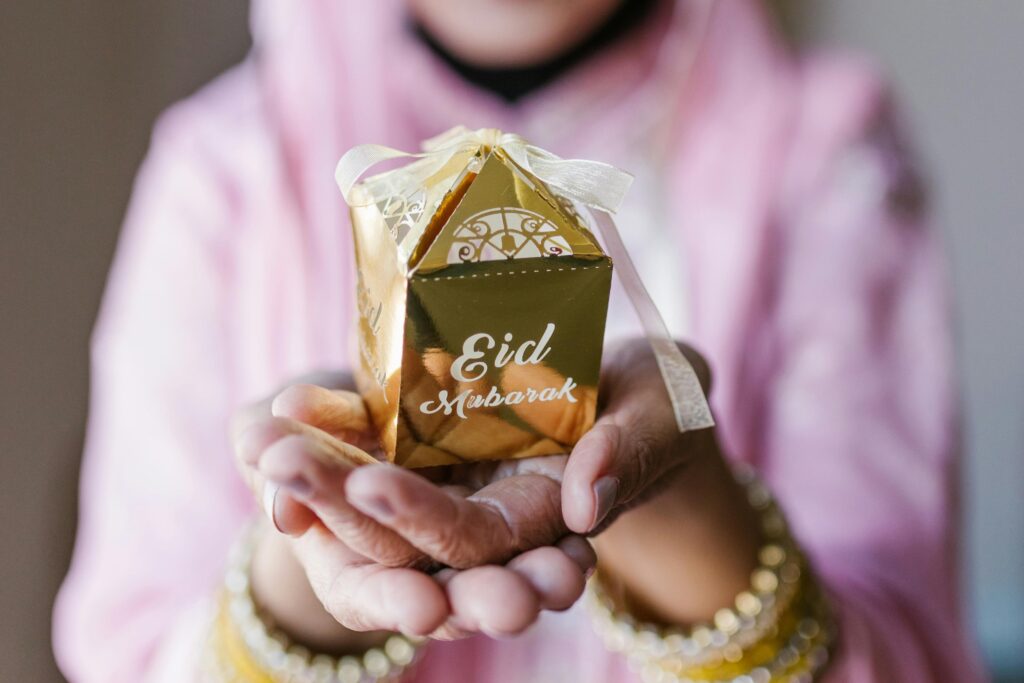
What is Eid al-Fitr?
In Islam, Muslims celebrate two Eids, one at the end of Ramadan and another on the 10th day of Dhul Hijjah. Eid al-Fitr is a festival that marks the end of Ramadan.
Muslims celebrate it on the first day of Shawwal, the tenth month of the Islamic calendar, upon the sighting of the new moon. This differs from Eid al-Adha, the “Festival of the Sacrifice”, which occurs in Dhul-Hijjah, the last month of the Islamic Calendar.
It’s also a celebration that serves as a reward to Muslims for fasting from dawn to dusk and abstaining from physical needs and bad deeds for Allah (SWT)’s sake. Ramadan is a long spiritual journey Muslims take to purify their souls and strengthen their faith in Allah (SWT).
Therefore, we celebrate this Eid as a way of expressing gratitude to Allah for allowing us to fast during Ramadan, seek forgiveness in it and earn numerous blessings from it. This is what makes the festival a time of joy, celebration and community.
How do Muslims celebrate Eid al-Fitr?
Eid al-Fitr is a time of joy and celebration. A time when Muslims gather with family and friends, exchange gifts, share food and engage in other festivities.
Some of the common traditions associated with the blessed day include:
Eid prayer – Muslims gather in large congregations in mosques or open spaces to perform the Eid prayer, which is a special prayer consisting of two units (rak’ahs).
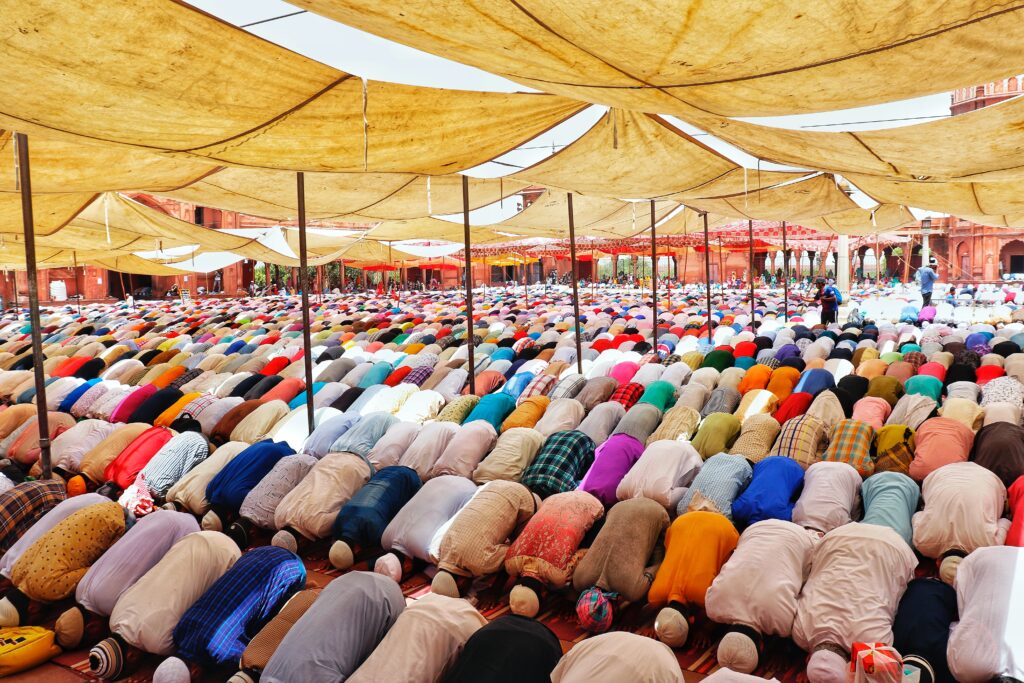
Giving gifts – Muslims exchange gifts with family and friends, especially children, as a way of expressing love and gratitude.
Sharing food – Muslims prepare and share feasts with family and friends, often featuring traditional dishes and sweets.
Dressing one’s best – Muslims dress up in their best clothes, often traditional clothing, to mark the special occasion.
Visiting loved ones – Muslims visit relatives, friends, and neighbours to exchange greetings and share food and sweets.
The Importance of Zakat al-Fitr
Zakat al-Fitr (also known as Fitrana) is a compulsory form of charity specific to Eid al-Fitr. Muslims must give it before the Eid prayer on the day of Eid.
This way, we can ensure the poor and needy of our Ummah around the world can also enjoy the festivities of Eid al-Fitr with loved ones. If one fails to give it before Eid prayer, then the payment is Sadaqah and the reward for it is lesser.
Zakat al-Fitr is mandatory for every adult Muslim with wealth beyond their basic needs, such as food, clothing, and shelter. Typically, the head of the household gives the payment on behalf of all dependents, including children and elderly parents.
The amount of Zakat al-Fitr is typically equivalent to one saa (approximately 2.5 kg) of food per person. It can be given in the form of food, such as wheat, barley, dates or raisins. You can also give money equivalent to the value of these food items.
Where to Pay Zakat al-Fitr
At Islamic Relief, your Zakat al-Fitr is connected to thousands of communities around the world, granting families and children the means to enjoy their Eid al-Fitr free from hardship.
By giving your Zakat al-Fitr through Islamic Relief, you can help make a lasting difference in the lives of those in need, on Eid and in the future to come.
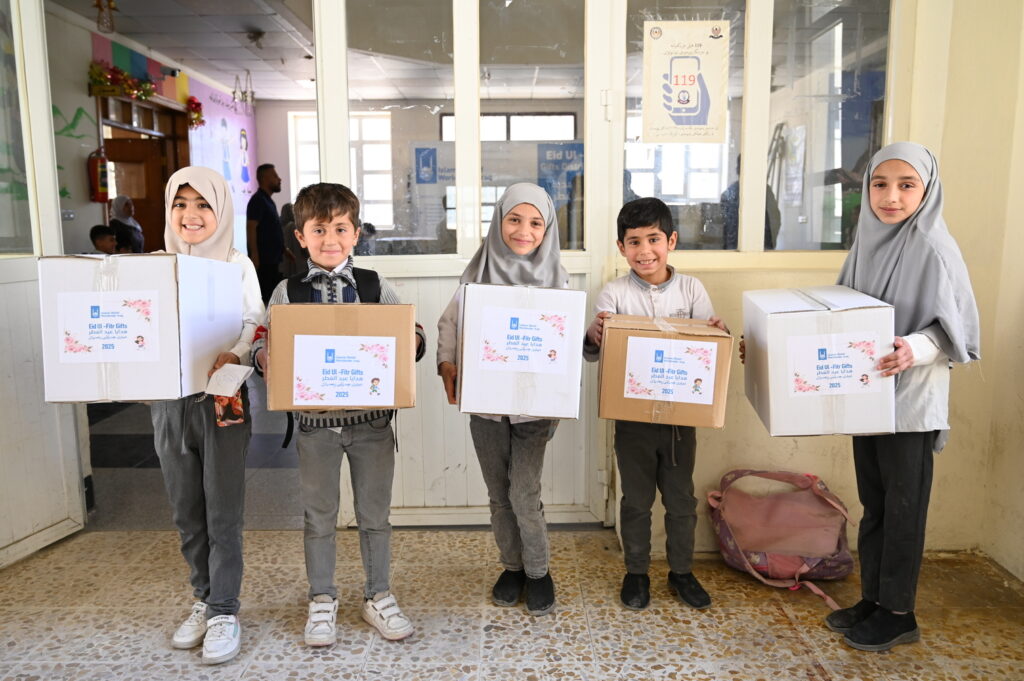
All in all, Eid al-Fitr is an important festival in the Islamic calendar that marks the end of the holy month of Ramadan. It celebrates the completion of our month-long spiritual journey during the month of fasting. It is a time of joy and community. When Muslims express gratitude to Allah (SWT) and come together with family and friends.
Regardless of when or where you are celebrating Eid al-Fitr, may the blessed festival be one of happiness, peace and immense blessings for you and your loved ones.
Have you paid your Zakat al-Fitr yet?
Multiply your rewards from Allah (SWT) this Eid. Give the gift of happiness and hope to our brothers and sisters in need with Islamic Relief.

